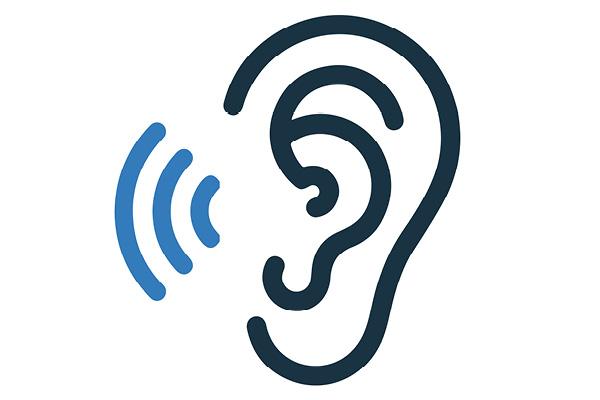
The Lancet Commission on Hearing Loss, through research partnerships at Duke University and RTI International, has published a suite of tools to measure stigma related to being d/Deaf or hard of hearing.
This special supplement, titled “Measure to Understand: Tools to Assess d/Deaf and Hard of Hearing Stigma,” is the result of interdisciplinary collaborative teamwork undertaken under the auspices of a stigma subgroup of the Lancet Commission on Hearing Loss. The subgroup was co-led by Howard Francis, MD, MBA, FACS, Chair of the Duke Head and Neck Surgery & Communication Sciences (HNS&CS) Department and Richard Hall Chaney, Sr. Distinguished Professor of Otolaryngology and Laura Nyblade, PhD, a Fellow and Senior Stigma and Discrimination Technical Advisor at Research Triangle Institute (RTI). The research was co-led by a team from RTI including Dr. Nyblade, Rachel Stelmach, MPH and Elizabeth Troutman Adams, PhD in collaboration with partners in Ghana—the Educational and Assessment Research Center, Accra; the Speech and Hearing Center, Accra; and Kwame Nkrumah University of Science and Technology, Kumasi—as well as partners at the University of North Carolina, Georgetown University, Gallaudet University, and University of California San Francisco.
In addition to Dr. Francis, contributions were made to the special supplement by current and former Duke faculty including Jessica S. West, PhD, MPH, a medical sociologist and faculty at Duke HNS&CS; Sherri Smith, AuD, PhD, Co-Chief of the Communication Sciences Division at Duke HNS&CS; Debara Tucci, MD, MS, MBA, one of the HNS&CS Department’s longest-serving faculty members, now Adjunct Professor and Director of the National Institute on Deafness and Other Communication Disorders (NIDCD) at the National Institutes of Health; and Blake Wilson, PhD, Adjunct Professor in the HNS&CS Department, recipient of the 2015 Russ Prize and the 2013 Lasker~DeBakey Award for his involvement in the development of the cochlear implant. Drs. Wilson and Tucci are the chair and co-chair of the Lancet Commission on Hearing Loss.
Stigma has long been recognized as a barrier to healthcare engagement and overall well-being, and it continues to hinder progress in research, practice, and policy. This special supplement introduces a novel set of tools designed to measure stigma, aiming to guide innovative strategies for its reduction. These interconnected tools are tailored for use with individuals who are d/Deaf or hard of hearing (d/DHH), as well as their parents, care partners, and healthcare providers. Additionally, the suite includes specific measures addressing hearing device stigma and ageism. These new measures promise to provide valuable insights about the role of stigma as a barrier to addressing the global disability burden associated with hearing loss. A better understanding of hearing loss stigma and opportunities to reduce it, offer real opportunities to create effective and durable initiatives that address hearing and ear health at the population level.
Find out more about these measures, their preliminary validation in the United States and Ghana, and a plan for how they can help end d/DHH stigma in the eight manuscripts published as a special supplement in Ear and Hearing.